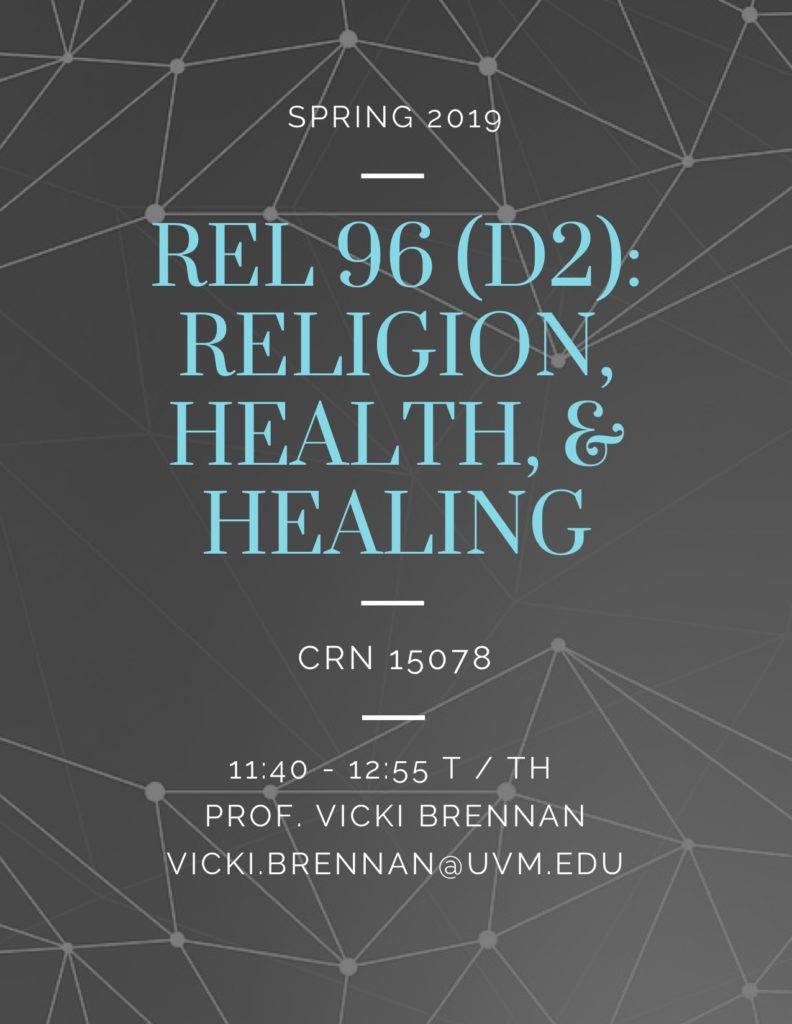
NEW COURSE!
Professor Brennan is excited to offer a new intro-level course on “Religion, Health, and Healing” this spring. Given Professor Brennan’s areas of expertise, the course will emphasize religious cultures found on the African continent. However, the case studies considered center on the role of religion in ideas about health and healing, as well as how disease and illness are interpreted and acted on through religious means.
COURSE DESCRIPTION:
This course is a comparative and cross-cultural exploration of the relationships between religion, health, and healing. Through a consideration of case studies from the US, South Africa, Niger, Ethiopia, and Egypt (among others), we will examine how religion shapes people’s understanding of health and well-being and provides them with a means of interpreting and responding to illness, suffering, and death. Drawing upon interdisciplinary approaches that include religious studies, anthropology, history, music, and ethnic and gender studies, we will consider the diversity of ways in which religion both reflects and shapes ideas about health, well-begin, illness and disease. We will consider topics such as: spirit possession and altered states of consciousness, the importance of sound and music to healing processes, issues of race, gender, and sexuality in relation to religious worldviews and healing systems, and the possibilities and potentials for integrating indigenous healing practices with Western bio-medicine.
COURSE OBJECTIVES
• Students will develop an awareness of the diversity of attitudes towards religion, health, and healing in both Euro-American and non-European cultural contexts.
• Students will develop an appreciation for the assumptions upon which their own ideas about religion, health, and healing are based.
• Students will come to understand the intersection between religion and healing in a variety of contexts, including how such ideas came to be, how ideas about religion and healing are articulated in a variety of forms including ritual, biography, and political action, and how they are represented in a variety of media including scholarly writing, popular media, and films.
• Students will develop critical thinking skills that will enable them to analyze information and evaluate arguments from diverse viewpoints and multiple perspectives.
• Students will develop critical reading and writing skills that will allow them to interpret and apply the knowledge acquired in this class.
